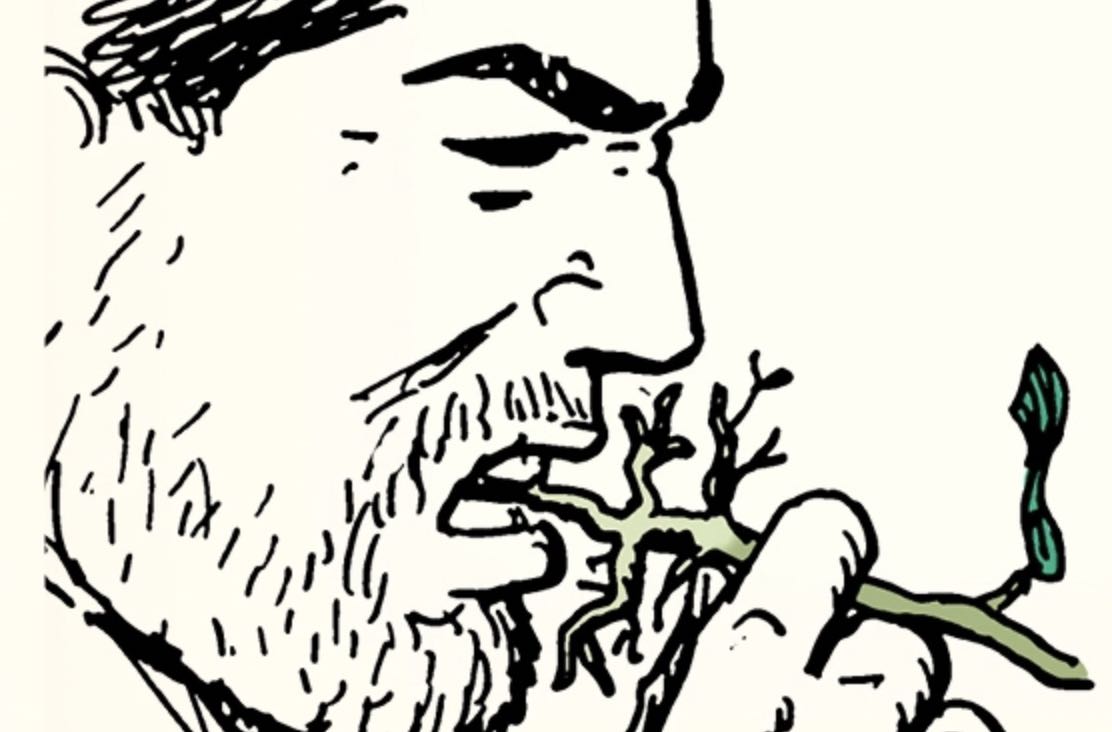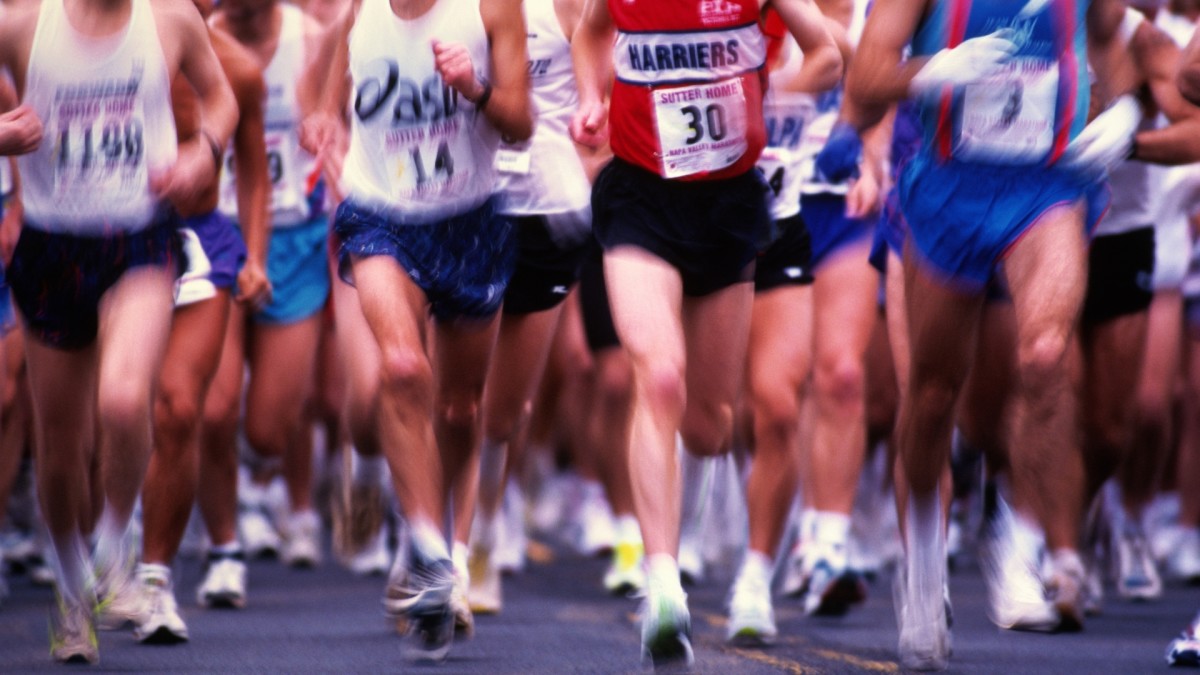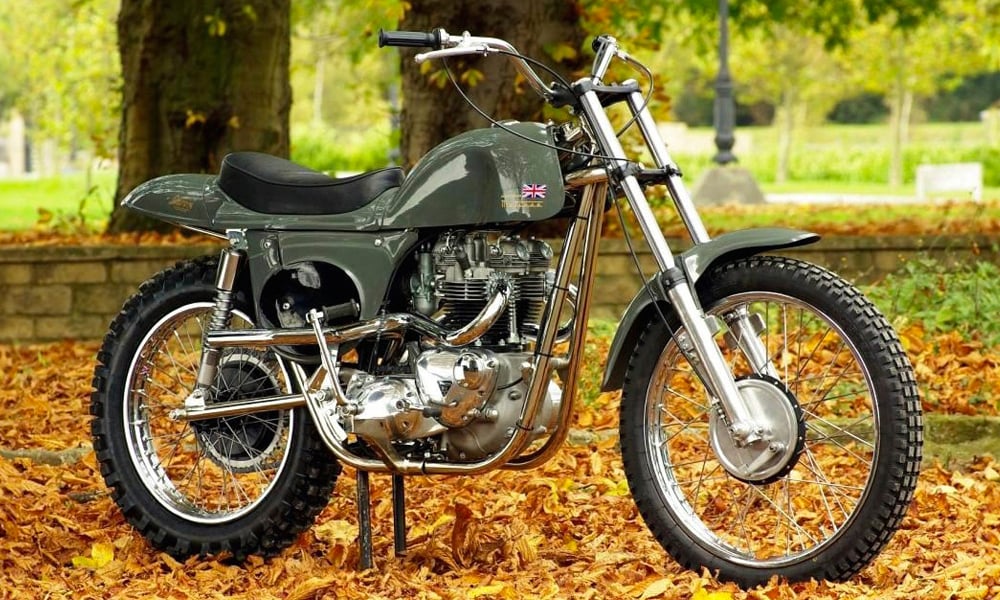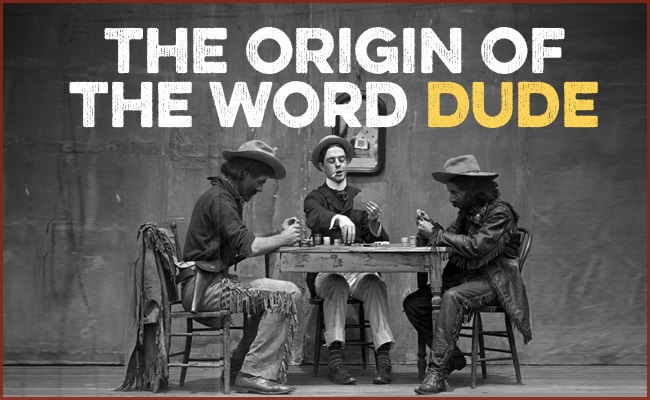
My go-to moniker for different males has lengthy been “dude.”
“What’s up dude?”
“He’s a very good dude.”
“Take a look at this dude over right here.”
For me, a dude is a cool, laid-back, stable man.
I’m not alone in my use of dude. It’s been broadly employed by my fellow American males for many years.
However what’s the origin of the phrase dude?
I took a deep dive into its etymology to search out out.
The Start of the Dude
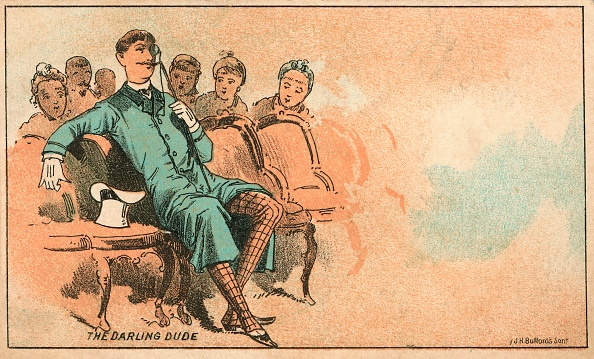
Due to tireless analysis by two etymologists, we all know the precise date the phrase dude was coined.
Robert Sale Hill revealed a poem in The New York World on January 14, 1883, describing a kind of foppish younger man dwelling in cities. These younger males have been overly fastidious about their clothes, professed an curiosity in avant-garde artwork, and smoked tiny cigarettes. They have been the Nineteenth-century model of the Twenty first-century hipster.
And just like the hipsters of the 2010s, the dandies of the Eighteen Eighties have been a trope that the general public beloved to lampoon.
Within the poem that Robert Sale Hill revealed, he known as these fops “dudes.”
Etymologists Barry Popik and Gerald Cohen theorize that Hill derived the phrase “dude” from “doodle,” as in “Yankee Doodle Dandy.” The unique New England Yankee Doodle, Cohen notes, “was the nation bumpkin who caught a feather in his cap and known as it macaroni; i.e., by sticking a feather in his cap, he imagined himself to be trendy just like the younger males of his day generally known as ‘macaronis.’”
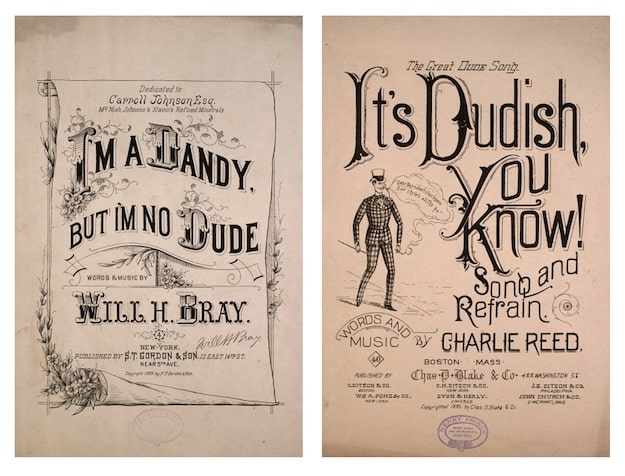
Songs, satirical in nature, have been written about Nineteenth-century dudes. “Dudish” because the adjective type of dude additionally got here into use within the late Nineteenth century and continued into the Twentieth. It’s nonetheless typically used at the moment by older generations to explain a male who’s trying sharp and well-dressed.
After Hill’s poem about dudes was revealed in 1883, “dude” grew to become the phrase of the 12 months. Newspapers and magazines began writing about dudes and dude life. Sometimes, the goal was to make enjoyable of those dudes as exemplified in one other poem revealed the identical 12 months:
“What’s the dude, papa?” she mentioned, with candy, inquiring eyes,And to the data looking for maid, her daddy thus replies:A weak mustache, a cigarette, a 13 button vest,A curled rim hat—a minaret—two watch chains cross the breast.A pair of bangs, a lazy drawl, a lackadaisy air;For gossip on the membership or ball, some little previous ‘affair.’Two pointed footwear, two spindle shanks, full the nether charms;And observe fitly within the ranks, the 2 bow legged arms.An empty head, a buffoon’s sense, a poising perspective;“By Jove” “Egad!” “However aw” “Immense!” All these make up the dude.
I just like the reminder in that final line that children have all the time had their set of slang that the fogeys discovered foolish. Immense!
Don’t Name Me Dude, Pardner!
Due to newspapers and magazines, “dude” unfold throughout the nation. When ranches opened within the American West that catered to rich metropolis slicker males from the East who needed to expertise the rough-and-tumble frontier in consolation, they got here to be generally known as “dude ranches.”
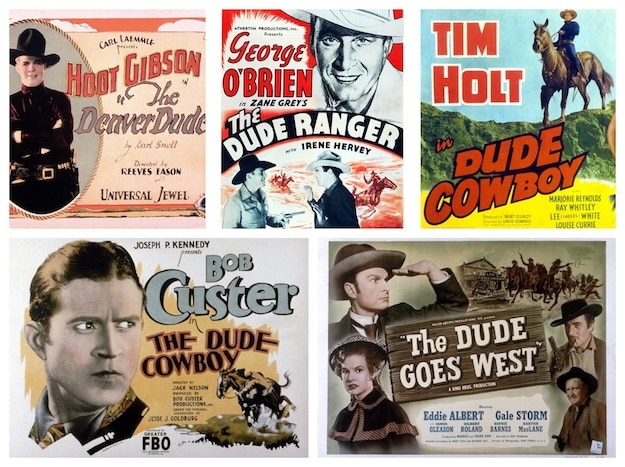
Motion pictures with “Dude” within the title, that includes some variation of a citified man transplanted to the West, have been extremely popular up by way of the mid-Twentieth century.
Being known as a “dude” was fairly the insult within the West. It meant you didn’t have the grit, toughness, and data to thrive on the frontier. It principally meant you have been a delicate pretender. When Theodore Roosevelt moved from excessive society life in New York Metropolis to the Dakotas to attempt his hand at wrangling cattle, he was usually known as a dude by the veteran, hard-boiled cowboys he encountered. Entering into bar fights and exhibiting his mettle as a rancher quieted, although by no means solely quashed, these accusations of dude-dom.
The Fashionable Dude
For the remainder of the Nineteenth century and into the start of the Twentieth, “dude” maintained its which means as a “well-dressed man.” There have been makes an attempt to create a female model of dude by creating the phrase “dudine.” It by no means caught.
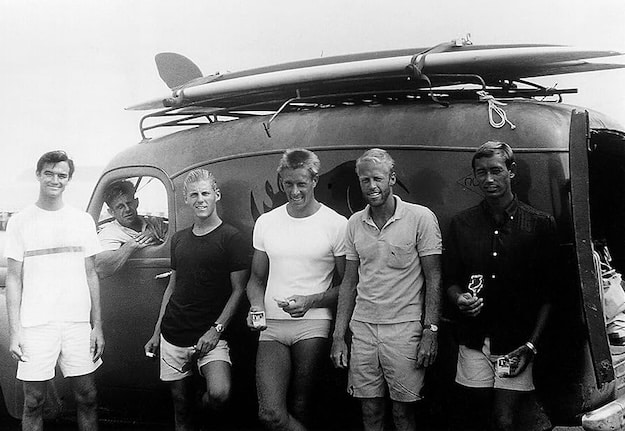
Prototypical surfer dudes.
Because the Twentieth century progressed, varied subcultures in the US began utilizing dude as a generic moniker for males. Within the Sixties, “dude” gained prominence in surfer tradition as a synonym for “man” or “fella.” However it was a sure kind of man or fella, one who embodied the laidback ethos of surfer tradition. The female “dudette” kind of took off throughout this time, however like its Nineteenth-century dudine counterpart, it by no means caught on.
By the Seventies, dude was a typical option to describe a laid-back man with whom you could possibly get alongside. Principally, that is when it began getting used the best way that I, and most dudes, use dude at the moment.
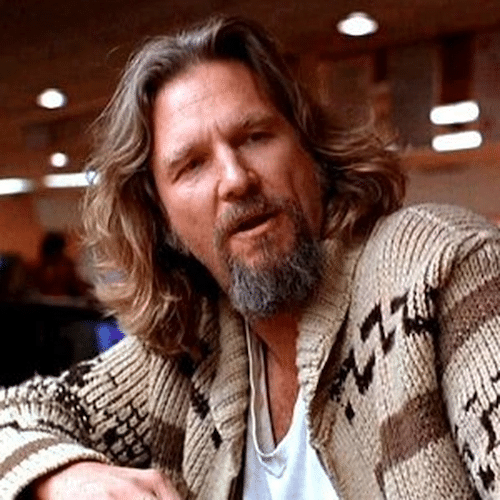
The Dude abides.
1998’s The Huge Lebowski cemented “dude” because the go-to moniker for chill hombres. Jeff Bridges performed “The Dude” and epitomized a laid-back and carefree way of life, inspiring the creation of a parody neo-religion known as Dudeism. This motion embraces the philosophy of taking it straightforward and discovering contentment in easy pleasures.
Alright my fellow dudes, now you already know the place the phrase dude got here from.
It began off as a option to make enjoyable of Nineteenth-century hipsters and changed into a time period of endearment.
Lengthy dwell the dude.

